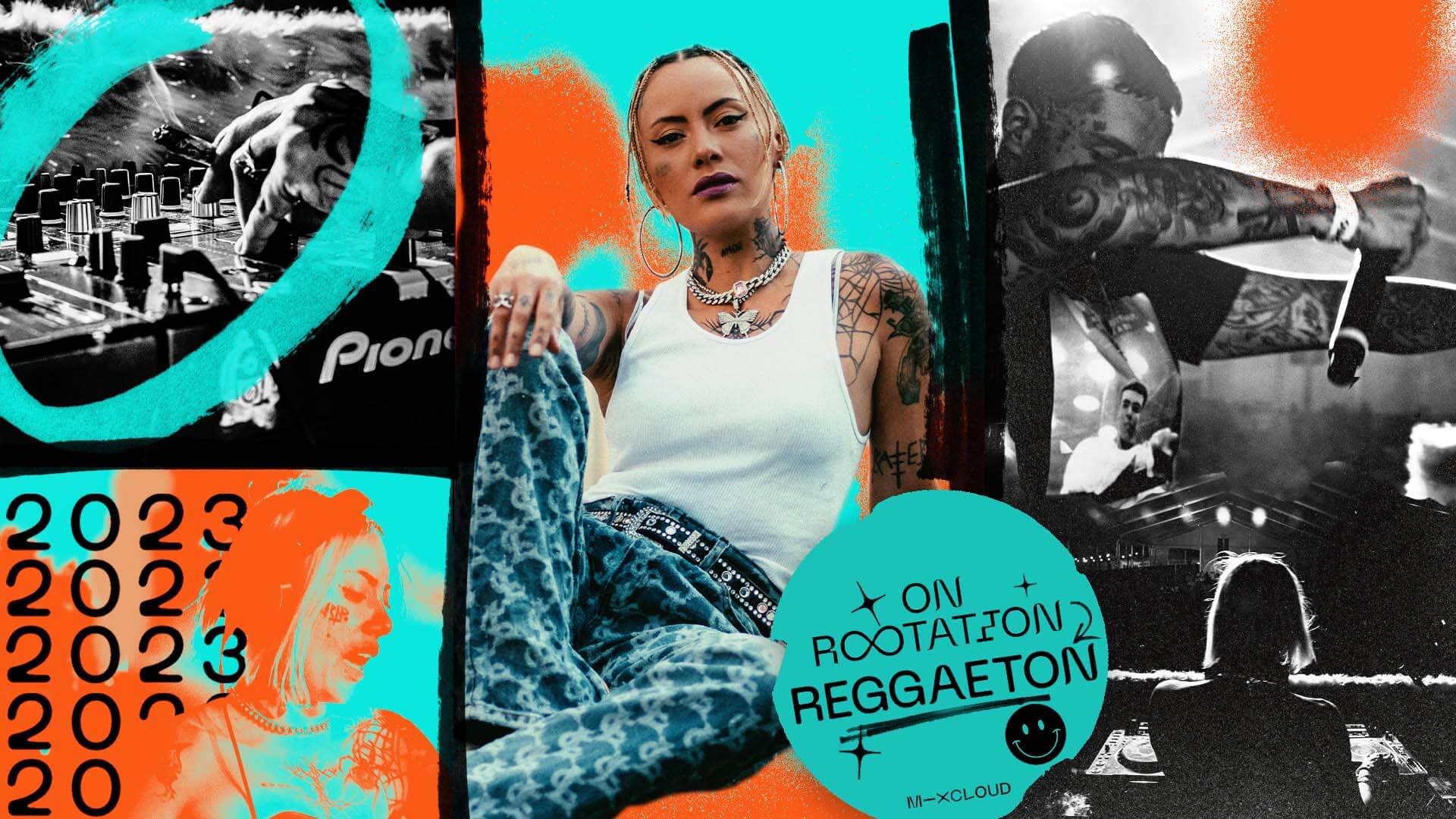At the end of 2022, we asked for your help in deciding which sounds will leave a lasting impression on 2023 and you didn’t disappoint. With genres as varied as Bossa Nova, Jersey Club and Amapiano, global music is in a wonderful place.
In the third part of our ongoing spotlight of the genres that mean the most to you, we’re in Latin America to get the lowdown on a regional movement that has become worldwide: Reggaeton. First heard on the shores of Panama in the 1980s, this extremely percussive sound – instantly recognisable thanks to its four-four drum pattern – has had feet tapping on dancefloors across the planet for decades.
Nowadays, the likes of Bad Bunny, Daddy Yankee, J Balvin and Karol G are the names most connected to the sound. But Reggaeton itself is evolving, depending on which part of Latin America you’re from. Puerto Rico and Colombia have recently led the charge thanks to the names above, but cultural and musical undertones lie within each country.
We reached out to a new-age titan of Reggaeton to find out more. Rosa Pistola is a DJ, radio host, curator and record label head with her eyes and ears firmly on the ground. Born in Colombia and now based in Mexico, she has seen the genre’s rise first hand, playing her part in popularizing the scene with her sets and record label Le Chekera. She’s also paying attention to how it is being redefined by a new generation of artists and voices. She gives us a breakdown of Reggaeton through her lens.

What is Reggaeton most known for?
Rosa Pistola: I would say Reggaeton’s most characteristic aspect is that it makes people want to dance, even if you hate it!
Describe the energy of Reggaeton in three words.
Sexy, aggressive and controversial.
Tell us about a DJ or party in Reggaeton that is really pushing the scene forward?
This could sound like an ego trip but I would say me! Mostly because I’ve been true to Reggaeton’s nature and roots. I’ve been the person to bring its true essence to places it didn’t belong and wasn’t fully accepted. Outside of mainstream events, artists or scenes.
I’m not just a DJ; I also pay tribute to Reggeton’s history and creators through documentaries and music compilations. I also have a label that works with underground artists and producers from all of Latin America and we are pushing the sound to a more personal interpretation.
Who are some of the biggest names in Reggaeton right now?
If we’re talking mainstream then Karol G, Feid and Bad Bunny.

What made you fall in love with Reggaeton in the first place?
Coming to Mexico and seeing the Reggaeton scene here. Going to the Mexican dance showcases – or perreos as they’re called here – was incredible. This was long ago, I am a little old! But it was cool because I got to live a lot of experiences new Reggaeton kids wouldn’t understand.
You were born in Colombia but based in Mexico, and Puerto Rico has become a big home for it in recent years. Is the scene different in these countries and if so, how?
It is super different. I feel that in Colombia and Puerto Rico for example, they are home for most of the biggest Reggaeton artists and this music is very normal for them, something of the day to day. Something that every place and person consumes no matter if you are rich, poor, handsome, ugly, Christian, Catholic, whatever.
But in Mexico there is still a very clear segregation of this music culture. They created their own version of Reggaeton – Cumbiaton – that is more from the streets than the original and the aesthetic is also much flashier. Musically, it is much faster and always includes El Guiro or Guacharaca from La Cumbia. This made me fall in love with it.
Tell us about what inspired you to start your own label La Chekera. What impact do you think it’s having on the scene?
The need to have a place with few rules to create. The need to have a place where we could be responsibly irresponsible! And to create music in a safe place for us. By safe I mean it is a place where you don’t have to compete, where you’re not going to be judged for making mistakes or doing some terrible song.
I think La Chekera is important for the kids and for me because it is a place to learn, it is the step you take before becoming a huge superstar; that is what I hope! It is the place where you can make your mistakes and learn from them.
You also have your Radio Super show on NTS where you spotlight the Reggaeton underground – how important is it for you to highlight up and coming talent?
I’m really and truly in love with music and music culture, so I try to not make what I do about me. Rosa Pistola exists to tribute music and culture.
“Reggaeton’s most characteristic aspect is that it makes people want to dance, even if you hate it!”
What do you think lies in Reggaeton’s future?
I think it is going to continue but I see people getting kind of tired of the same mainstream Reggaeton. I would like to hear more Cumbiaton in all the parties around the world, and its artists touring also all around the globe.

Head over to Mixcloud to discover more Reggaeton shows and all of our genres.
